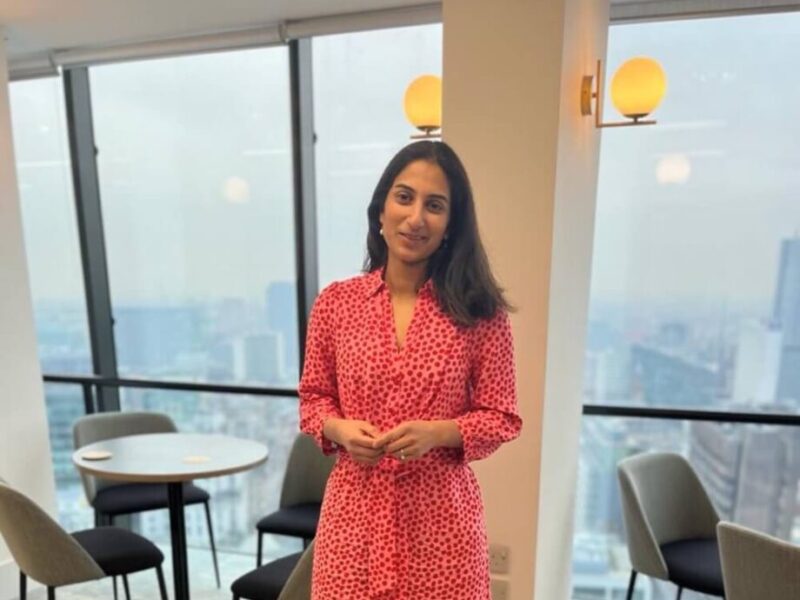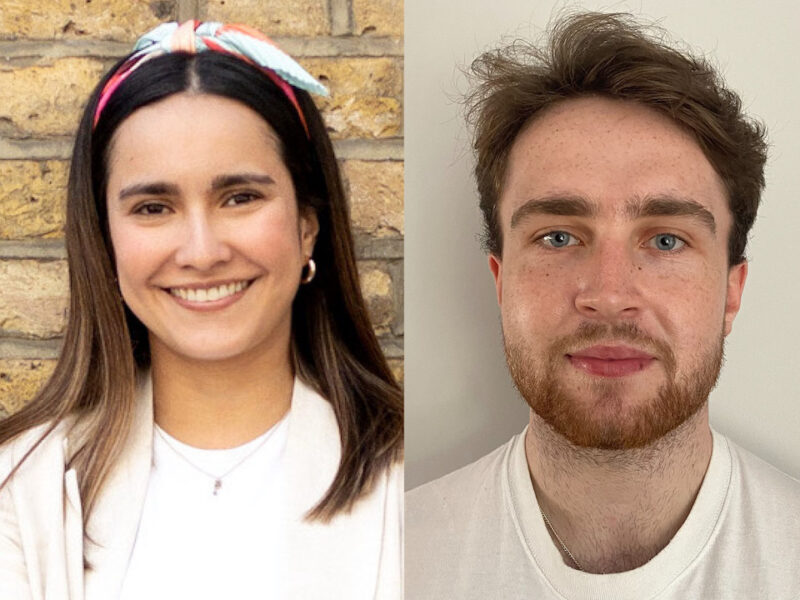
Summer 2023
A dual career in pharmacy and healthcare law: Your alumni community
Pharmacist, healthcare lawyer and Chair of the Royal Pharmaceutical Society in England, Thorrun Govind (MSc Pharmacy, 2015) reflects on the...
Legacy giving, also known as leaving a gift in your will, has the potential to forge new futures while honouring a life’s work. For Emeritus Professor Peter Lantos and His Honour Dr Jeremy Connor (ThD, Theology & Ministry, 2011), a legacy gift to King’s offered the opportunity to unite their two professions by pledging to support research into neuroscience and law.
Professor Lantos spent 22 years as Professor of Neuropathology at King’s. His contribution to the study of Alzheimer’s cannot be overstated and in a severe, progressive, parkinsonian-type neurological disease, the diagnostic hallmark is now known as Papp-Lantos inclusion in the brain. During his time at the Institute of Psychiatry (now the Institute of Psychiatry, Psychology & Neuroscience), Professor Lantos published more than 500 articles and edited numerous medical textbooks. He was elected Fellow of the Academy of Medical Sciences in 2001.
Dr Connor first connected with King’s while taking intercollegiate lectures in law as a University of London student, before he embarked on a stellar legal career. After graduating, he went on to practise as a criminal barrister and was appointed to the Treasury List at the Central Criminal Court before becoming a Metropolitan Magistrate and then a Circuit Judge. Later, he served as Chairman of the London Probation Committee and then as a member of the Lord Chancellor’s Advisory Committee for Education and Conduct, the Judicial Studies Board, and the Parole Board. He completed his doctorate in Theology at King’s in 2012.
For Professor Lantos, the multidisciplinary environment of King’s provided an ideal opportunity to develop not only his career, but also to give opportunities to young neuroscientists to pursue a wide range of research interests. All his PhD students became leading experts and professors in their fields.
On retirement, Dr Connor, after having decided to return to university for a doctorate, found that King’s offered the most attractive tuition and supervision in a welcoming environment.
Professor Lantos and Dr Connor have decided to support the two disciplines that defined their illustrious careers through a legacy gift to King’s. Their hope is to provide funding for a burgeoning interdisciplinary approach for early-career research that combines their two fields. ‘The main purpose of the gift is to advance knowledge in the medico-legal field,’ they say.
‘Our own experiences in two different fields have been that the bridge between the two different disciplines, medicine and law, is difficult to build and our modest help might be just a brick to satisfy this growing need,’ they note.
Getting one’s foot in the door can be incredibly difficult for researchers. An understanding of this was what spurred Professor Lantos and Dr Connor to support individuals in the early stages of their careers: ‘We feel that one of the most difficult obstacles is starting a career in research.’
Professor Lantos himself benefitted from funding early in his career, when he was awarded a Wellcome Research Fellowship from the Wellcome Trust, allowing him to come to the UK in 1968 from Hungary. ‘It opened up a completely new world for me,’ he says. And, when Dr Connor was undertaking his PhD at King’s, he added: ‘It was a pleasure to explore a new field, which was opened up by the staff as I was preparing for my doctorate in Theology.’
The culmination of this experience was a decision to invest, not just in the future of King’s, but in the future of its students.
Professor Lantos is the author of three books to date: his memoir Parallel Lines – a Journey from Childhood to Belsen (2006), the novel Closed Horizon (2012) and most recently, the children’s book The Boy Who Didn’t Want to Die (2023).
The first and the third book are about a childhood journey and his recollections of travelling from Hungary to a concentration camp in Germany during the Second World War. The first is for an adult readership, while The Boy Who Didn’t Want to Die is for children and told from the point of view of a child. Professor Lantos hopes that sharing his story might help children not only to learn, but also to do their best to prevent similar atrocities recurring.
Linking the tales of his past and his aspirations for the future, Professor Lantos remarks: ‘To tell the story, even to children and to make a legacy do not seem to have anything in common. Yet both have a common purpose: an attempt to help young people by making their life better.’
You must be logged in to post a comment.

Pharmacist, healthcare lawyer and Chair of the Royal Pharmaceutical Society in England, Thorrun Govind (MSc Pharmacy, 2015) reflects on the...

At King’s, we believe that lack of funding shouldn’t prevent talented students from receiving a first-class education. Thanks to the...
very inspiring tale
very inspiring stories
Thank you for showing us such inspirational human awareness and constructive compassion. I shall get your book